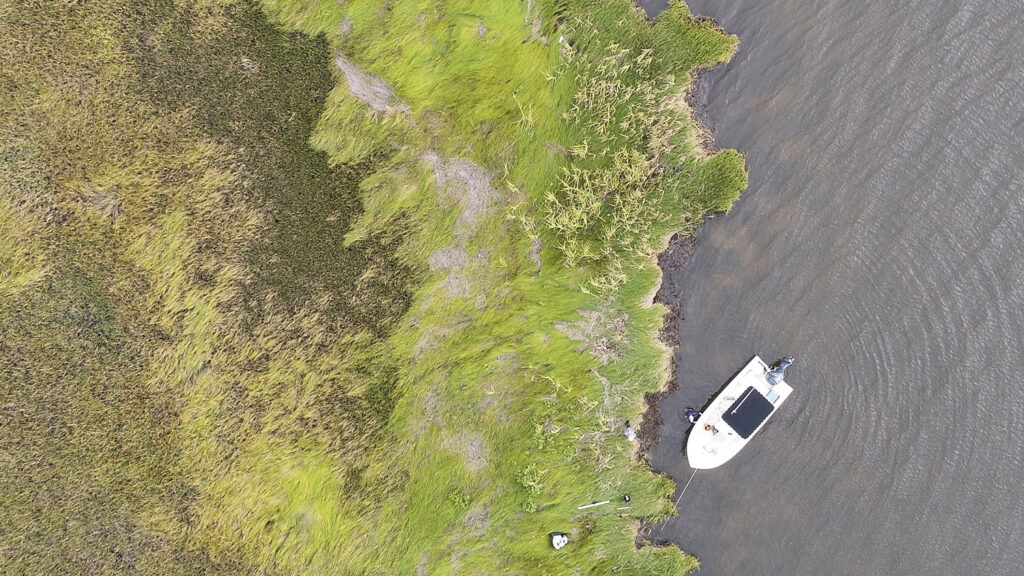Marine Science
Marine scientists explore all aspects of the seas, seeking to understand how the oceans, their biological communities, the solid earth and the atmosphere interact.

Degrees Offered
Bachelor of Science in Marine Sciences
- Biological Oceanography concentration
- Chemistry concentration
- Geology concentration
- Meteorology concentration
- Physics concentration
Bachelor of Science in Natural Resources
What Do Marine Scientists Do?
Chemical oceanographers study such things as how minerals on land weather into salts and enter the ocean, how chemicals in seawater interact and react, how organic material created by plants survives in the ocean and is buried in sediments deep below the sea surface (and thereby subtracts greenhouse gases from the atmosphere), and how major elements cycle through the ocean.
Geological oceanographers are concerned with plate tectonics and how new crust is formed below the ocean, with the formation and evolution of marine sediments and coastlines, and with reconstruction of ancient environments from fossils and minerals found in the seafloor.
Marine meteorologists work to better understand air-sea interactions such as the exchange of gases, nutrients, heat and water across the air-sea interface.
Physical oceanographers map bodies of water and model water motion to better our understanding of how the movement of seawater affects the transfer of heat, of inorganic and organic materials, and of plant cells and animal larvae from one part of the world to another.
Biological oceanographers explore the biological systems of the marine realm, seeking to establish the interconnections between organisms and their physical regime, nutrient flux, and geologic setting.
Careers
Marine scientists are tasked with increasing the scientific knowledge base. As professionals with interdisciplinary training, they are needed to advise business, industry and governments on the potential impact of human activities and the wise use of marine resources.
Marine scientists work for consulting firms; regulatory agencies; the mass media; business and industry; federal, state and local governments; academic laboratories; research and education organizations; and nonprofit environmental watchdog groups.
Examples of career opportunities include modeling, predicting and publicizing weather; predicting and mitigating natural disasters; managing coastal zones that have dynamic geology; monitoring pollution, managing marine resources; and researching sustainable fisheries.
Educational Requirements
A strong high-school foundation in the natural sciences (physics, chemistry, biology, earth sciences), mathematics (analytic geometry and calculus) and communication skills (speaking and writing) is essential.